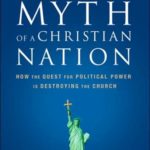We run our website the way we wished the whole internet worked: we provide high quality original content with no ads. We are funded solely by your direct support. Please consider supporting this project.

God’s “Ways” and “Thoughts” are Higher
Isaiah 55:8-9 is one of the more often quoted passages in the Bible. It reads:
… my thoughts are not your thoughts,
neither are your ways my ways …
As the heavens are higher than the earth,
so are my ways higher than your ways
and my thoughts than your thoughts (vss. 8-9).
This passage is frequently cited as an expression of God’s “wholly other” transcendence, sometimes even being invoked to protect incoherent theological positions from reasonable objections. However, is this what God’s “ways” and “thoughts” are referring to here?
If we read from verse one in this chapter, we see that verses 8-9 actually conclude a larger section where the Lord confronts the nationalistic myopia of his people by announcing that anyone from any nation who is thirsty or hungry can come and feast at his banquet table for free (vss. 1-2). He promised all who come to his feast that he will bring them into the “everlasting covenant” that he “promised to David” (vs. 3). For, the Lord says, David was raised up not just to be the earthly king of the Jews but also to be a “witness” and “ruler” of all nations (vs. 4). If Israel was God’s chosen nation, we see, it was only to be used to help all nations realize that they too are “chosen.”
The Lord reiterates this point further when he goes on to proclaim to his nationalistic-minded people that they will someday “summon nations you know not, and nations you do not know will come running to you” because the Lord “has endowed you with splendor” (vs. 5). Only then can we see what is really going on when the Lord proclaims the nature of his “ways” and “thoughts.”
Yahweh is here confronting the myopic, nationalistic mindset of his people. His ways are “higher” than theirs precisely because, while Israel always had a tendency to think Yahweh somehow belonged uniquely to them, everything Yahweh was doing in and through them was in fact being done with a view of reuniting and blessing all humans by bringing them under his loving reign.
Image by Samuel Zeller.
Category: General
Tags: Covenant, God, Israel, Nationalism, Transcendence
Topics: God
Verse: Isaiah 55
Related Reading

Podcast: Do You See a Difference Between Patriotism and Nationalism?
Greg separates the wheat from the chaff in this allegiance-busting politically provocative episode. http://traffic.libsyn.com/askgregboyd/Episode_0380.mp3

When God is Revealed
Whether we’re talking about our relationship with God or with other people, the quality of our relationships can never go beyond the level of trust the relating parties have in each other’s character. We cannot be rightly related to God, therefore, except insofar as we embrace a trustworthy picture of him. To the extent that…

“Whatever it means, it cannot mean that.”
pure9 via Compfight Roger Olson wrote a great article a couple of days ago entitled Why (High) Calvinism Is Impossible. He points out that there is no way to understand God as “good” while also believing in double predestination. The idea that God predestines some to heaven and a vast majority to hell for his “glory”…

Podcast: Defending the Manifesto (8 of 10 )
Greg responds to challenges by William Lane Craig from Craig’s podcast “Reasonable Faith.“ Greg discusses salvation, specifically whether Paul understands salvation in primarily legal terms versus covenantal terms. http://traffic.libsyn.com/askgregboyd/Episode_0063.mp3

Making God in Our Own Image
In this video, Greg introduces the idea of how we make God into our own image instead of allowing God to define himself through the revelation of Jesus. In an interview performed by Travis Reed from theworkofthepeople.com, we have a basic, quick introduction to a core element of Greg’s theology. This is a great piece to…

Remembering the Myth During Election Season
Given the current political furor in America right now, we thought we would post an extended quote from Greg’s book The Myth of a Christian Nation. This book was originally a reflection on Christian political engagement during the 2004 election, and how conflating “America” with Christianity is devastating to the mission we’ve been given in the…
